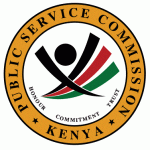Common CV Mistakes to Avoid: How to Write a Winning CV in Kenya
In Kenya’s competitive job market, your CV (Curriculum Vitae) should make a strong first impression on recruiters and hiring managers, compelling them to continue reading your CV. Certain Common CV Mistakes are a big turn-off and can ruin your chances of getting an interview.
This guide will walk you through the most common CV writing mistakes to avoid, how to craft a strong CV, and expert tips to help your CV stand out and pass Applicant Tracking Systems (ATS).

Introduction: Common CV Mistakes to Avoid
When writing a CV (Curriculum Vitae), small mistakes can make a significant difference in how your application is perceived by recruiters and employers. These common CV mistakes can get you disqualified regardless of your qualifications.
In a competitive job market, where your CV (Curriculum Vitae) serves as your personal marketing document, highlighting your qualifications, experience, and skills, it should showcase your A-Game without these Common CV Mistakes.
Many job seekers are unknowingly sabotaging their job search by committing common CV mistakes that instantly reduce their chances of being called for interviews.
Whether you’re a fresh graduate or an experienced professional, avoiding writing a good CV that is free from errors is crucial to help you stand out in the eyes of recruiters and pass Applicant Tracking Systems (ATS).
Small Common CV Mistakes, such as using a generic format, including irrelevant information, or failing to tailor your CV to match the job description, can hurt your application, even if you’re highly qualified.
This guide will explore the most common CV mistakes to avoid, offer tips on how to write a good CV in Kenya, and provide actionable insights to help you craft a winning CV that opens doors to real job opportunities. If you’re serious about landing that interview, understanding what not to do is just as important as knowing what to include.
Why You Should Avoid Common CV Mistakes
As a job seeker, you should keep your CV free from common errors.
Many job seekers submit CVs that contain small errors—like spelling mistakes, poor formatting, or generic CVs—without realizing how severely these can hurt their chances.
Hiring managers receive hundreds of CVs for a single open role, meaning any mistakes give them an easy reason to move on.
Here’s why removing these Common CV Mistakes matters:
- Shows professionalism: Your CV represents you before you ever meet a potential employer. A clean, well-structured CV free of errors shows that you are professional, organized, and pay attention to detail—qualities every employer wants.
- Improves Your Chances of Passing ATS: Many companies in Kenya now use Applicant Tracking Systems (ATS) to screen CVs before human review. These systems automatically filter CVs that don’t meet specific criteria. Formatting errors, keyword gaps, and irrelevant content can stop your CV from even reaching the hiring manager.
- Shows You Took Time to Prepare: Submitting a polished, customized CV shows employers that you’ve done your homework and are serious about the role.
- Increases Interview Opportunities: A professionally crafted CV that is free from common mistakes will stand out in the competitive job market, increasing your chances of being called for an interview.
- Helps You Communicate Clearly: Common CV mistakes can convey the wrong information. When it’s filled with typos, incorrect punctuation, or grammatical errors, it communicates carelessness, poor attention to detail, and a lack of professionalism, instantly turns off hiring managers and ruins a great first impression, no matter how qualified you are.
Most recruiters in Kenya spend less than 10 seconds scanning a CV, so avoiding mistakes is crucial.
Common CV Mistakes to Avoid
- Using one generic CV – (a One-Size-Fits-All CV)
- Spelling and Grammar Errors
- Unprofessional Email Address
- Too Long or Too Short A CV
- Including Irrelevant Information
- Poor Formatting: A cluttered or inconsistent layout makes your CV hard to read or navigate.
- Lying or Exaggerating:
- Missing Key Sections
- Avoid Including Hobbies in Your CV
- Adding your picture
- Adding too many graphics
- Lack of a CV Title
- Not Including Keywords for ATS
Using One Generic CV – (One-Size-Fits-All CV):
This is one of the most common CV mistakes where job seekers use the same CV for every application. There is no such thing as using one medicine to cure all diseases. Always tailor your CV to align with the job you are applying for
Many job seekers make the mistake of creating one generic CV and sending it out to every job opportunity they come across.
This approach may seem convenient, but it significantly reduces your chances of getting noticed by employers.
Different recruiters have different, unique requirements, keywords, and expectations even when the vacancies sound the same.
When you submit a CV that doesn’t align with the job description, it appears lazy or irrelevant, even if you have the right qualifications.
A one-size-fits-all CV fails to highlight how you are the best match for that specific role.
Instead of using the same CV for every job, do this:
- Study the job advert – understand the key requirements, responsibilities, and skills needed.
- Customize your professional summary to align with the job title and industry.
- Highlight specific achievements and experiences that match the role.
- Use keywords from the job description to pass the ATS (Applicant Tracking Systems).
Example:
Let’s say you’re applying for a role as a Sales Executive and another as a Customer Service Representative. While both roles involve communication skills, the key focus is different:
- For the Sales Executive, you should emphasize meeting sales targets, negotiation skills, and product knowledge.
- For the Customer Service role, highlight conflict resolution, patience, and helping clients effectively.
Sending the same CV to both jobs will make it less relevant and less effective for each role.
Spelling and Grammar Errors
Spelling and grammar mistakes are among the most common CV mistakes — and most costly — CV writing errors.
They can instantly turn off hiring managers and ruin a great first impression, no matter how qualified you are.
When your CV is it’s filled with typos, incorrect punctuation, or grammatical errors, it communicates carelessness, poor attention to detail, and a lack of professionalism — traits no employer wants in a new hire.
Wrong spellings can convey a different message than what you intended to communicate in your CV
Example
If you write:
“Worked as a project manger for 3 years.”
Instead of:
“Worked as a project manager for 3 years.”
It completely changes the meaning. “Manger” means a feeding trough for animals, so spell check won’t catch it, but it gives the impression that you’re careless or inattentive
In job applications, one letter can make all the difference.
These small common CV mistakes can:
- Embarrass you
- Cause confusion
- Make the recruiter question your attention to detail
Always proofread your CV multiple times and use tools like Grammarly to review it to catch such mistakes.
In highly competitive job markets like Kenya’s, small errors can be the difference between getting shortlisted or being disqualified.
What to Do to Avoid Spelling and Grammar Errors:
- Proofread your CV multiple times.
- Use free tools like Grammarly or Microsoft Word spell-check to catch basic mistakes.
- Ask a trusted friend, mentor, or career coach to review it for you.
- Read your CV aloud to catch awkward phrasing or repeated words.
A CV with spelling and grammar mistakes sends the message that you don’t value accuracy — a red flag in any profession.
Take time to polish your CV until it’s clean, clear, and error-free.
A CV That’s Too Long or Too Short
Many job seekers make the mistake of either overloading their CV with too much information or under-delivering by providing too little.
A long CV may overwhelm the reader, especially where hiring managers often spend less than 10 seconds scanning each CV, while a CV that is too short may not adequately showcase the candidate’s qualifications.
Both extremes can hurt your chances of getting an interview.
Generally, a CV should aim for two pages, with a maximum of three pages being acceptable in some cases
A very long CV may look cluttered and unfocused, whereas a very short CV, like half a page, can make you appear inexperienced or unqualified, even when you’re not.
What’s the Ideal Length of a CV?
- 1 page: For entry-level candidates, recent graduates, or those with under 3 years of experience.
- 2 pages: For professionals with several years of relevant experience, skills, and achievements to showcase.
- Avoid exceeding 2 pages unless you’re in academia or a senior executive role.
Tips to Achieve the Right CV Length:
- Be selective – Only include experiences and skills that are relevant to the job you’re applying for.
- Use bullet points – They make information easier to scan and help keep things concise.
- Avoid repetition – Don’t restate the same skill or task under multiple roles.
- Cut out old or irrelevant information – For example, irrelevant job experiences, primary school education when you already have a degree, or other irrelevant personal details.
Keep your CV focused, impactful, and tailored to the job. Every line should add value and show why you’re the right fit.
Including Irrelevant Information
Many job seekers feel the need to include every detail on their CVs, believing it makes them appear more “complete” or trustworthy, but the opposite is often true.
Including details like age, religion, marital status, ID No., location, nationality, tribe, race, date of birth, or hobbies can do more harm than good.
These details are not only unnecessary but may create bias or take up valuable space that could be better used to highlight your qualifications.
Why You Should Avoid Including Irrelevant Information When Writing a CV
- Not relevant to the job – Employers are interested in your skills and the value you are adding, not your background.
- May lead to unconscious bias, including details like age, race, tribe, religion, or marital status, may expose you to unintended discrimination.
- Irrelevant details clutter your CV – These details take up space without adding value to your application.
- Makes a CV seem outdated – Modern CVs focus on skills, experience, and accomplishments. Including such personal information can make your CV appear old-fashioned.
Things to Avoid When Writing Your CV
- Date of birth
- Age
- Religion
- Marital status
- Number of children
- ID No.
- Nicknames – alias
- Location
- Nationality
- Tribe
- Race
- Too many phone numbers
- Hobbies and interests (unless directly relevant to the job)
- Photograph (unless requested or in a specific industry like modeling)
What to Include in Your CV Instead:
- Professional contact details – Email, phone number, LinkedIn profile.
- Professional summary – Highlight your career goals and top qualifications.
- Work experience – List relevant roles and accomplishments.
- Education – Mention your highest qualifications and certifications.
- Skills – Especially those tailored to the job you’re applying for.
- Achievements – Metrics or recognitions that set you apart.
If it doesn’t help you get the job, don’t include it.
Let your qualifications speak for themselves and keep your CV professional, concise, and tailored to the position.
Poor Formatting
A cluttered or inconsistent layout makes your CV hard to read or navigate.
First impressions matter — Poor formatting can immediately turn recruiters off, no matter how qualified you are.
Poor formatting in a CV makes it difficult for employers to read and understand a candidate’s qualifications, hindering their chances of landing an interview.
Remember, recruiters take around 10 seconds to scan through your CV. A cluttered, inconsistent, or hard-to-read CV can lead to a negative first impression and even result in the CV being overlooked
Why You Should Avoid a Poorly Formatted CV:
- Hard to read – Busy, unorganized layouts discourage recruiters from reading your CV.
- Unprofessional look – Inconsistent fonts, bad spacing, or misaligned sections suggest carelessness and a lack of keenness to details
- May not pass ATS software – Many companies use Applicant Tracking Systems (ATS) to filter CVs. Poor formatting can make your CV unreadable to these systems and get you rejected.
- Confuses recruiters – If your information isn’t laid out, key details may be missed.
Common Formatting Errors to Avoid in CV Writing:
- Using too many fonts. Choose one official font, like Times New Roma, and use it throughout
- Avoid too many colours and graphics in CV writing. Too many colors and graphics can be distracting, making the CV unreadable and unprofessional.
- No clear sections – lumping everything together without headings leads to a lack of clarity on where to find certain details. Use a strong, bold heading to identify different sections
- Inconsistent bullet points, line spacing, or font sizes
- Extremely small or extremely large font. Use size 11/12 for the body and 14/15 for headings
- Walls of text with no spacing or breaks. Maintain standard margins on all sides to maintain a clean, balanced look and ensure readability
- Overuse of bold, italics, or underlining
Tips for Clean, Professional Formatting in CV Writing:
- Use a clean, simple font like Calibri, Arial, or Times New Roman (size 10–12).
- Maintain consistent formatting throughout — same bullet style, font size, and margin spacing.
- Use clear section headings: Professional Summary, Work Experience, Education, Skills, etc.
- Make use of bullet points for job duties and achievements to improve readability.
- Keep margins between 0.5 to 1 inch.
- Save and send your CV in PDF format to preserve formatting across devices.
Think of your CV like a marketing document — it should be visually appealing, well-organized, and easy to scan in under 10 seconds. A neat layout increases your chances of getting noticed and called for an interview.
Unprofessional Email Address
Your email address might seem like a small detail, but it can leave a big impression, good or bad.
Including an unprofessional or inappropriate email address on your CV can instantly make recruiters question your seriousness and credibility.
Why You Should Avoid an Unprofessional Email Address in Your CV:
- Lack of professionalism – An email like mpendamamanzi@gmail.com, hotboy254@gmail.com, or cutegurlkenya@ymail.com might have been fun in school, but in the job market, it comes off as immature and careless.
- Unprofessional email weakens your first impression – Employers may doubt your judgment or overlook your application entirely.
- Distracts the recruiter from focusing on your qualifications – Instead of focusing on your skills and experience, the recruiter may focus on your odd email choice.
- Some emails may affect email deliverability – Old or rarely used domains (like Yahoo or Hotmail) sometimes end up in spam folders or get flagged by recruiters’ email systems.
How to Create a Professional Email For Your CV:
A professional email address includes your official name, either your first name + second/last name, name + numbers/profession.
For example:
- okellojames@gmail.com
- lucykimani@yahoo.com
If your name is already taken, consider adding a number or your profession:
- mary.odhiambo.marketing@gmail.com
- erickkimani2025@gmail.com
Tips for Creating a Professional Email Address:
- Stick to your real names.
- Avoid nicknames, slang, or humorous phrases.
- Use trusted platforms like Gmail or Outlook.
- Don’t use an email linked to your current employer (e.g., admin@jobsnairobi.co.ke).
- Keep it short, clear, and easy to type.
It’s a small fix, but it makes a huge difference in how professional and job-ready you appear.
Before sending out your CV, double-check your email address — it might be what opens the door (or shuts it) to your next job opportunity.
Lying or Exaggerating in a CV
One of the worst mistakes you can make in your CV is including false information.
Many candidates are tempted to lie or exaggerate their experience, inflate job titles, fake skills, or even add jobs they never held, hoping to boost their qualifications.
While it might seem like a shortcut to getting noticed, it often backfires badly, leading to negative consequences, such as job loss, damage to reputation, and even legal repercussions.
Why You Should Avoid Lying or Exaggerating in Your CV:
- Employers verify – Many employers conduct reference checks, background verification, and even skills tests. Lies will easily be uncovered.
- It damages your credibility – Once caught, it’s not just that job opportunity you lose, it can damage your professional reputation.
- You could get fired later – Even if you land the job, being exposed later can lead to dismissal or legal consequences.
- It adds pressure – You’ll constantly feel stressed trying to live up to fake claims or remember your made-up experiences.
Examples of Lies or Exaggerations in CVs:
- Claiming you worked as a “Marketing Manager” when you were an intern.
- Listing software or technical skills you’ve never used.
- Extending the length of time you worked at a certain job.
- Creating fake companies or referees.
What You Should Do Instead:
- Be honest about your experience, focus on what you did.
- Highlight your strengths genuinely. If you lack experience, emphasize your willingness to learn, relevant training, or transferable skills.
- Use strong language to describe your real accomplishments without crossing into dishonesty. For example:
- Instead of saying “Led the company’s marketing team,” say “Supported the marketing team in executing digital campaigns.”
Tips to Avoid Lying:
- Don’t panic if you lack experience—many employers value integrity and potential.
- Use action verbs and quantify real results when possible (e.g., “helped increase sales by 20%”).
- Consider including volunteer work, internships, or freelance gigs, as long as you’re transparent.
Always be honest; never lie about academic qualifications. Avoid falsifying qualifications or roles. Do not list skills or jobs that you know you are not competent in or did not attend.
Lying might get you in the door, but truth and competence are what keep you there. Employers are looking for people they can trust—and trust starts with your CV.
Missing Key Sections
Some job seekers forget to include critical sections like the Core Components of a CV
Some of the Core components of a CV that should never be missing from your CV include:
-
Professional Summary
-
Key Skills
-
Work Experience
-
Education
-
Certifications (optional)
-
References
Avoid Including Hobbies in Your CV
This is also one of the most common CV mistakes where job seekers are looking for fillers to make their CV look lengthy, or thinking it will be an advantage.
However, Job seekers should avoid adding hobbies in their CVs because:-
Hobbies Do Not Add Any Professional Value to Your CV
- Employers are mainly interested in your skills, qualifications, and work experience not not what you enjoy doing over the weekend.
- Personal hobbies like “watching movies,” “listening to music,” or “playing video games” have no value, and instead, job seekers should focus on achievements, skills relevant to the job.
They Take Up Valuable Space
- Your CV should ideally be 1–2 pages, and every word should count. Including hobbies can waste space. Use the available space to list relevant details such as your experience, achievements, skills, and certifications
Risk of Bias
- Some hobbies may unintentionally open the door to personal bias.
- For example, a recruiter may have a negative perception about certain interests or lifestyles, which could affect your chances.
- For example, listing your hobby as “playing video games”, where the recruiter finds such lifestyles lazy, could lead to disqualification.
Irrelevance to the Job
- Unless the hobby directly relates to the job (e.g., photography for a creative role), it’s often seen as irrelevant filler.
When to Include Hobbies in a CV
-
Include your hobby only when it is directly related to the job (e.g., coding open-source projects for a software developer role).
-
You’re applying in a creative industry where personal interests show uniqueness (e.g., design, arts, media).
-
If you want to show your personality or soft skills, do it by emphasizing:
-
-
Volunteer work
-
Leadership roles
-
Projects you’ve led or contributed to
-
Clubs or activities that highlight relevant skills
-
Example:
Avoid:
-
-
Hobbies: Watching Netflix, Traveling, Listening to music
-
Better Alternative:
-
-
Projects: Developed a personal budgeting app to help track expenses, demonstrating problem-solving and basic software development skills.
-
Adding your picture
- Including a photo can introduce bias from hiring managers judging someone based on appearance rather than skills and qualifications.
Adding too many graphics
- Excessive graphics can distract the employer from your experience
- Not compatible with Applicant Tracking System. If it’s not ATS-friendly, they won’t even see it, hence you will assume they didn’t even read your CV.
Lack of a CV Title
- Failing to include a specific CV title makes your document generic. Always include a title like “Certified Procurement Officer” or “Experienced Primary School Teacher.”
-
Your CV title should match the job description.
Not Including Keywords for ATS
Most companies use Applicant Tracking Systems (ATS) to filter CVs.
Use job-specific keywords like “inventory control,” “graphic design,” or “social media management.”
How to Write a Good CV in Kenya
Final Tips to Make Your CV Stand Out
- Customize every CV for each job application.
- Use active language: “Achieved,” “Led,” “Managed,” “Increased.”
- Save and send your CV as a PDF unless instructed otherwise.
- Name your CV professionally: e.g., John_Kamau_CV_SalesManager.pdf
- Consider professional CV writing services if unsure.
Final Words on Common CV Mistakes to Avoid
Avoiding common CV mistakes can be the difference between getting shortlisted and being ignored. Invest the time to write a clear, concise, and tailored CV that speaks directly to the job you’re applying for.
Remember, your CV is your first impression—make it count!
Need CV Writing Services in Kenya?
At Kazikazi Agency, we help job seekers revamp their CVs to boost their chances of getting hired. Whether you’re fresh out of school or transitioning careers, we’re here to help you stand out.





